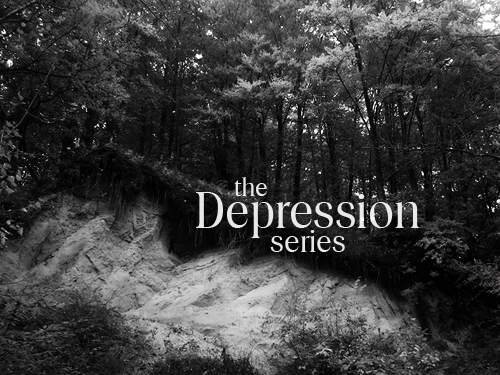Part 3 – The Depression Series

Before starting the process of eliminating depression, you should own your decision to do so. You should feel with your whole being the desire to lift up your spirit and feel better. It’s not easy, I know, and this desire will probably come from getting too fed up with your suffering. The big question is: do you really want to get rid of depression?
I believe no one should be forced to do anything, or live in any particular way. You are absolutely free to feel, think and be whatever is comfortable or uncomfortable for you. You are free to be as happy or as miserable as you wish. Don’t feel like getting out of bed? You are free to stay in bed. Can’t fight the obsession with suicide? You’re free with that, too. It’s not a parent or a spouse the one who decides for you to get better, it’s not a therapist the one feeling your feelings and thinking your thoughts for you, and it’s not a drug what makes practical changes in your life.
If you want to make some sense of yourself and your own life, you have to be honest with yourself. I’m speaking about that level of honesty you can feel in your mind, heart and body cells 🙂
There are points in depression when you simply cannot assume the responsibility of change, and/or you can’t cope with the effort. It’s fine. Recognize what you feel, and act in a way that supports positivity and comfort, no matter how weak it may seem at the moment. For example, if it feels better to linger in confusion, take your time, don’t hurry. As long as you are in touch with how you really feel, you’re in a position of power. And don’t worry, when you’re ready to start helping yourself, you’ll know – it will be the option that feels better.
Trying a few exercises can be very useful in order to bring some clarity to the mind. Here are a few questions that may help you ponder some delicate issues related to depression. Try writing or typing whatever pops into your mind. It’s fine if you just think these through, but my personal recommendation is to write them down, and keep them for further analyses. Just don’t force the process.
1. What is wrong in your life right now?
“Everything”, “nothing” or “I don’t know” might be common first answers to this question, but they are dismissive. We often use them to avoid thinking and/or talking about what was asked. The process of finding answers to this question can help you clarify some of the usual confusion present in depression.
It is an uncomfortable question, and it triggers emotion – you get to know at a deep level how you resonate with various aspects of your life.
What are some of the things that make you angry, sad, disgusted, disappointed, etc.? Nothing is too big or small, and there are no right answers. If you’re tempted to say everything is wrong in your life right now, just try to break “everything” into smaller parts. Just release as much discontent as you can.
With all that negativity in front of your eyes, life will look very grim, indeed. However, you should also feel some relief and a growing sense of control. It’s one thing to have thoughts wandering through your mind freely, and a completely different one to list them, strike though them, organize them, have a material representation of them.
2. If anything about your life could change instantly, what would you like that to be?
Here you might list practical issues together with emotional ones. The only “rule” is to make an effort, if necessary, to list what you truly want, not what you are “supposed to” want.
For example, let’s say you’re unemployed, broke, divorced and have two children. Your list of things you would like to change might include: financial comfort, time spent with your kids, feelings towards your ex-spouse, your confidence and self-image.
Don’t worry about the direction you want for these changes, or how they could happen. You should look for particular uncomfortable issues in your life just to get a better idea about your needs, wishes and priorities. You’ll think later about dealing with things and your own attitudes towards them.
3. What do you get out of being depressed?
This question is tricky. You may answer any way you feel, but the goal here is to dig up some roots.
Consider the possibility of being stuck with depression for reasons such as not knowing what to do in certain situations, with particular people, or in life in general. Maybe depression keeps you from something you don’t want to experience, because you’re either afraid or you feel inadequate for that experience, or because of any other reason.
Keep in mind that depression may often feel like a factor of stability in your life.
Of course, answers such as “total misery”, “loneliness”, “lack of interest in anything”, “nightmares”, “feeling misunderstood”, etc. are fine, and should be listed as well.
4. If you ceased to be depressed, what would life look like?
Can you imagine a life without depression? Don’t worry if you can’t. There can be a positive side to this – you don’t have a fixed idea of how things “should” be, so you can build your own personalized version of happiness, one step at a time.
In depression, the future looks very much like a black hole, and everything seems useless. So, this question is more of an acknowledgment of the possibility to have a life without depression. Don’t stress yourself over it. Keep the question in mind, and repeat it from time to time. Give yourself the time to compile and adjust your answer, until it feels comfortable.
Stay safe until the next episode – we’re getting into the interesting stuff 🙂